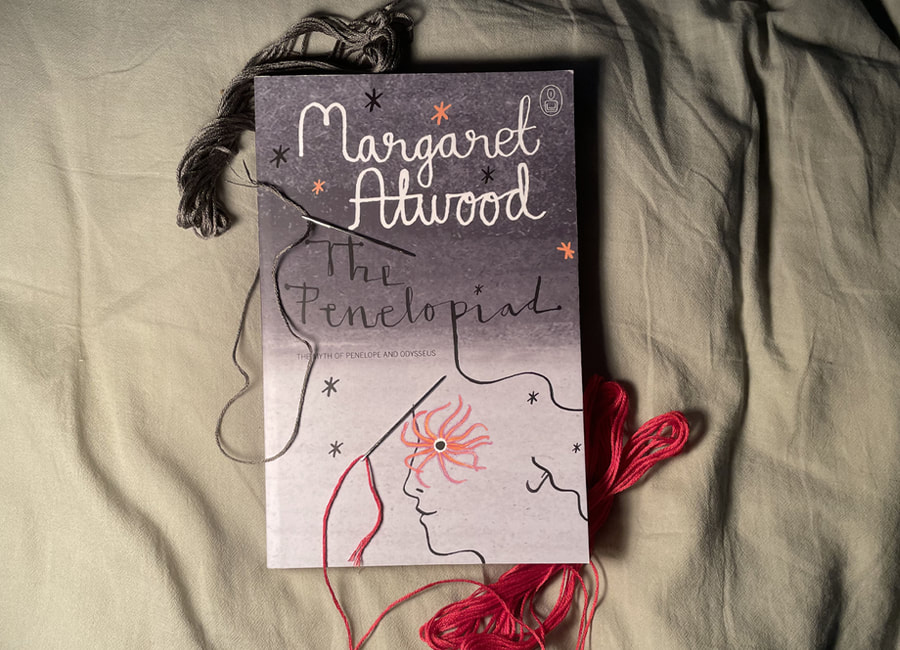Margaret Atwood was among the first of the world’s great contemporary writers invited by Scottish publisher Canongate to “boldly retell” legendary tales in a series called The Myths, released successively since 2005.
The publisher’s idea was for this group of fine writers - which also included AS Byatt, Jeanette Winterson, Donna Tartt and David Grossman among others - to provide a contemporary and memorable spin on an ancient myth. In The Penelopiad, Atwood chose to retell the story of Penelope - famed wife of the glorious Odysseus, celebrated for her faithfulness, devotion and virtue as she patiently awaited the return of her husband during his 20 year absence when he went off to fight in the Trojan War. The reason she chose Penelope’s story? Because the version told in Homer’s ancient epic poem, The Odyssey, “doesn’t hold water”, as she writes in her introduction to the novella. She adds, there are “too many inconsistencies” surrounding the story of both Penelope and the gruesome hanging of 12 of her maids, an aspect of Homer’s tale that Atwood says has “always haunted her”. Atwood’s retelling is playful, irreverent and insightful. For starters, our narrator, Penelope, tells her story with candour, although she’s dead. She speaks directly to the reader from Hades, where she occasionally still sees the characters, also long dead, who shaped her life and are forever entwined with her legend. She’s omnipresent, she’s sharp as a tack, with a dry wit, and she has a strong desire to set the record straight on many of the myths and “slanderous gossip” that have swirled around her and Odysseus over the past “two to three thousand years”. In Homer’s account, the story goes that soon after Penelope marries Odysseus, moves to his island kingdom of Ithaca and has a baby son Telemachus, Odysseus leaves for the Battle of Troy. After 10 years at war, he spends another 10 years on his perilous journey home, vanquishing monsters, sleeping with goddesses and other such hardships. Homer’s focus is, of course, squarely on Odysseus. But he does recount that during Odysseus’ absence, Penelope was the perfect wife, raising their son, and rejecting the advances of more than 100 suitors who wanted her hand so as to take over the kingdom. When Odysseus finally returns he kills the suitors and also twelve of Penelope’s maids. These essential facts are retained in Atwood’s retelling. But told from Penelope‘s perspective, we are given a multidimensional insight into her character, which Atwood has pieced together from other sources beyond Homer (and using her own vivid imagination and brilliant style). Penelope is seen in relation to many people: her indifferent father (who Penelope explains tried to kill her by throwing her in the ocean but she was rescued by ducks), her beautiful and insufferable cousin Helen of Troy (who Penelope thinks “should have been kept in a locked trunk in a dark cellar because she was poison on legs”) , her unimpressed mother-in-law (“a prune-mouthed woman”), her wily teenage son, the suitors and importantly, the twelve hanged maids. In keeping with Atwood’s revelation that these maids have haunted her, they provide a spectral chorus line throughout The Penelopiad, in counterpoint to Penelope’s narrative. The maids break up the sections of the narrative - a skipping songs, a sea shanty, a lament, a ballad, a courtroom, lectures - adding commentary in a way that is reminiscent of the famed chorus lines of Greek plays. Their interludes often have a cheerful tone overlaying a much more gruesome meaning, such as the first one about their own execution, in which they are skipping rope like carefree girls while singing of how they were hung. In so doing, Atwood provides a very different telling of the maids’ fate. For me, the beauty of Atwood’s retelling is that she does not change the key plot points of the almost 3000 year old legend as captured by Homer, but she does change Penelope’s narrative and the way we might understand her perspective, her strength, canny intelligence, her head for business and running the kingdom, her resilience and, most importantly, her ability to outmanœuvre the men who shaped her life. The Penelopiad adds to the award winning Canadian author’s fine collection of more than fifty books of fiction, poetry and critical essays, some of which - in particular her 1985 classic The Handmaid’s Tale - have taken on their own place in contemporary mythology as a symbol of resistance against the disempowerment of women. Comments are closed.
|
Categories
All
Archives
May 2024
|

